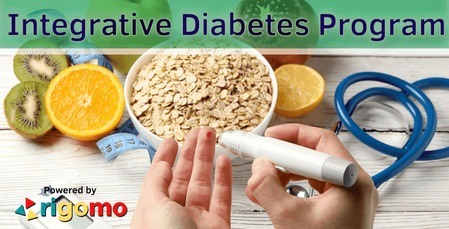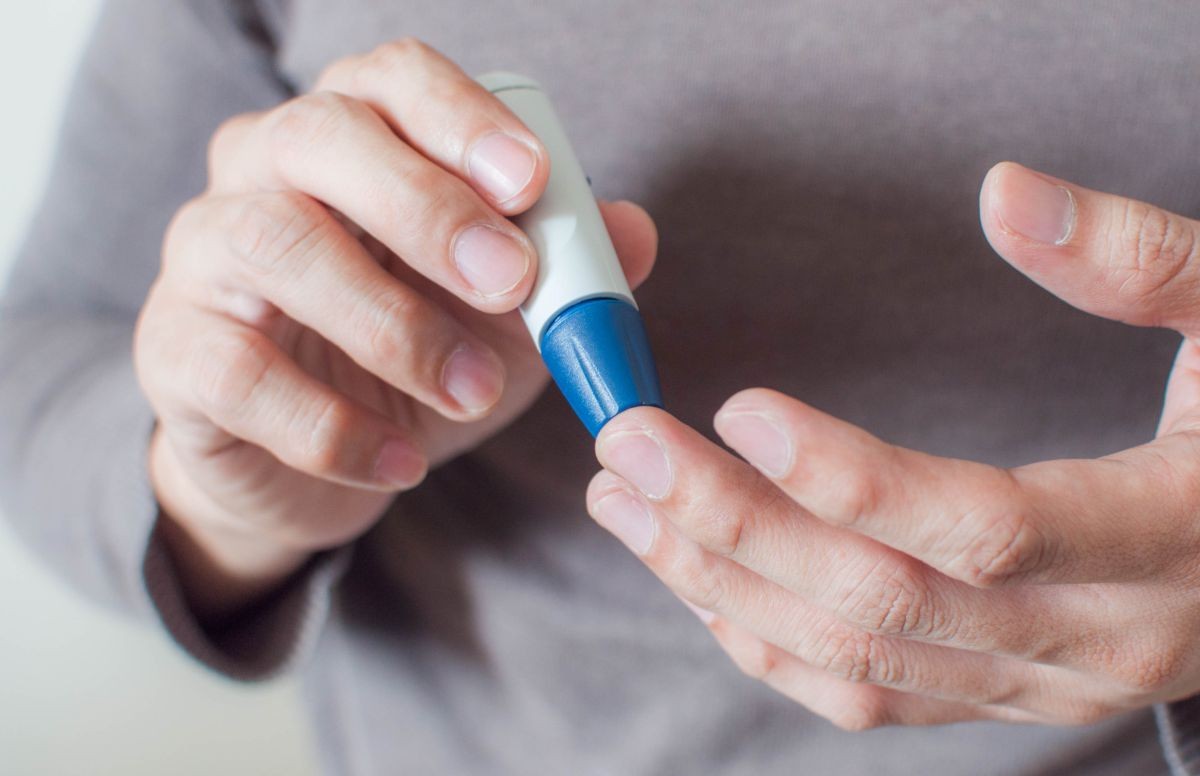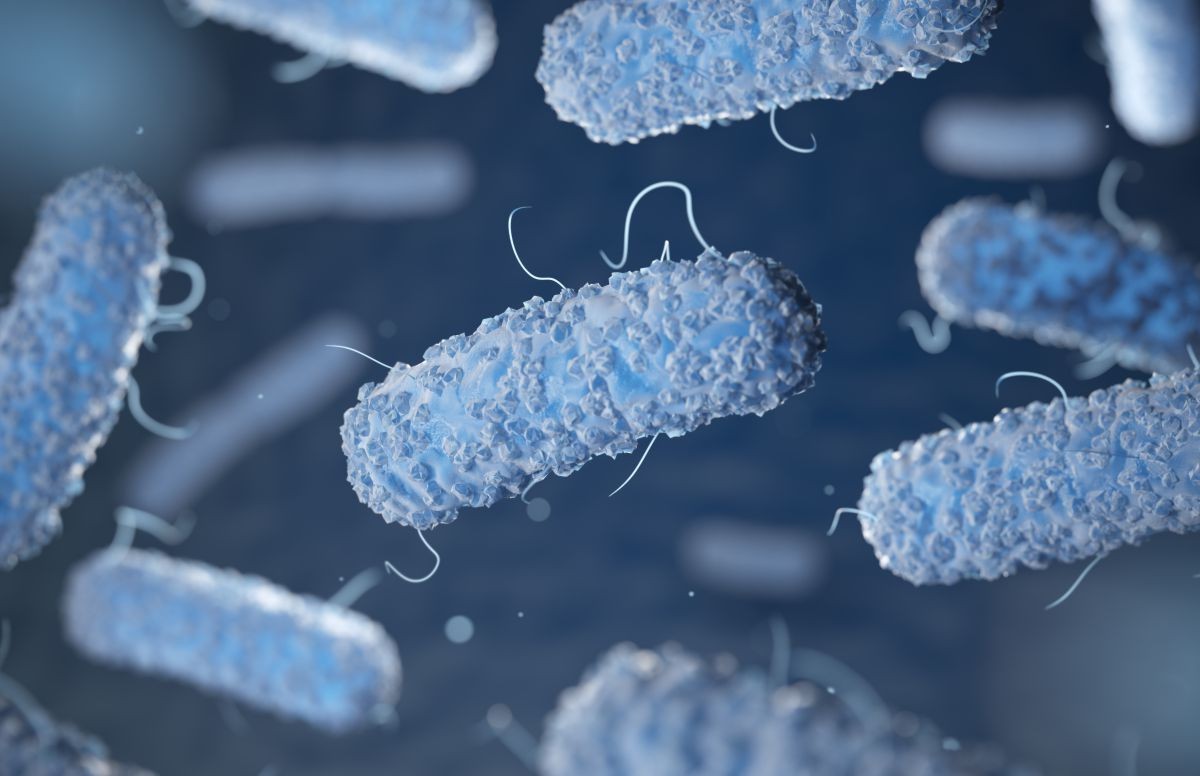
Created by - Rigomo Team
What is Diabetes, its main symptoms, and causes?
Diabetes is a complex metabolic disorder that lasts for a lifetime. In this disease, the bloodglucose level of the body becomes very high. This could happen due to an insufficient amountof insulin or body cells are unable to use and function properly with whatever insulin is presentin the body.Effect Of Insulin On Glucose MetabolismWhen we eat, our body gets glucose which our cell uses to give energy to the body. If there isno insulin in the body, then they are not able to do their work properly as Insulin is essentialto transport glucose from the blood to the cells. If glucose is not taken up by cells, glucosestays in the blood. The state of excess sugar or glucose in the blood is called High blood sugaror hyperglycemia, which can prove to be harmful.What are the Types of Diabetes?If we talk about diabetes, then generally they are of 3 types1) Type 1 diabetes2) Type-2 diabetes3) Gestational DiabetesWhat are the causes of diabetes?When our body is not able to use the glucose or sugar present in the blood properly. Then thestate of hyperglycemia sets in resulting in Diabetes. Generally, the main causes of diabetescan be- Lack of insulin History of pre-diabetes Family history of Diabetes Aging High cholesterol level Lack of physical activity/sedentary lifestyle Hormonal imbalance Poor eating habitsWhat are the symptoms of diabetes?Usually, the person with diabetes presents with symptoms such as: Excessive thirst Frequent urination Increased appetite Sudden increase or decrease in body weight Feeling tired Being irritable The frequent blurring of the eyes Wounds take a long time to heal Having a skin infection repeatedly More susceptible to having oral infections.
More detailsPublished - Sat, 19 Mar 2022

Created by - Rigomo Team
Sleep majorly impacts everyone’s life and has a major role in improving quality of life
What is the role of sleep? Good quality, uninterrupted sound sleep is essential to maintaining good health. Lack of quality sleep negatively affects mental as well as physical health. Research has proved that poor sleep can cause poor concentration, memory loss, weak immunity, increased risk of developing diabetes, high blood pressure, and associated risk of heart diseases are also increased. Not only this, studies have shown that if you don’t sleep well, the anti-diabetic or antihypertensive medicines don’t work effectively necessitating an increase in the dose of drugs. Whereas, good deep sleep improves metabolism, enhances immunity, and regulates blood pressure changes. Circadian rhythm The body’s internal process naturally regulates the sleep-wake cycle in response to light and dark environments and repeats itself every 24 hours. Different body organs are also reacting according to this internal biological clock, for example, the lungs are maximally active in the early mornings [4 am to 6 am], that is why if deep breathing exercises are performed at this time, they effectively help increase the lung capacity and improve lung function. Similarly, sleep is also affected by this clock. Is there any time that would help in sleeping better? It's better if one sleeps between 9 pm to 10 pm till 5 – 6 am to have good health. The entire energy forces are working together in reviving the various organs of the body, so sleeping at this time helps in healing and rejuvenation of the body, thereby improving overall health. The body is prepared to take rest at this time, eating or having food at this time disturbs the normal pattern. It put extra stress on the system to digest food at this time, which may negatively affect the metabolism processes leading to health issues in the long run Snoring and sleep apnoea is a sleep disorder characterized by interrupted breathing during sleep resulting in repeated awakenings. It is commonly seen in obese individuals where breathing repeatedly stops and starts again and presents as snoring or periodic gasping for air while sleeping. This issue is increasingly observed in the younger generation too nowadays. Snoring is characteristically seen as a sign of aging, so you should be worried about snoring… since it implies that you are aging faster… How do you improve the quality of sleep? 1. Have a light meal at dinner and consume it early, at least 3 hours before going to bed. Late-night heavy meals and excessive eating followed by sleeping immediately put pressure on the diaphragm which may cause breathing difficulty and Snoring, hence affecting sleep quality 2. Respect your biological clock 3. Stay away from electronic devices before going to bed 4. Have enough water till 6 pm, don’t consume more water late in the evening .
More detailsPublished - Mon, 11 Apr 2022

Created by - Rigomo Team
Control Your Blood Sugar Naturally At Your Home
In today's fast-paced lifestyle, most people prefer to eat fast food. A hectic, busy schedule and work pressure do not allow people to do any exercise and yoga. The increasing stress and poor lifestyle choices impact the physical and mental well-being of an individual. People face so many health issues such as diabetes, obesity, hypertension, etc. If you are suffering from diabetes or pre-diabetes, this is the time to take control and make changes in your lifestyle to control blood sugar. We proposed a few yoga poses and exercises which are useful and help you to control your diabetes. Best Yoga And Excercise For Diabetes Patients Before knowing the yoga asanas which will be helpful to control the sugar and progression of diabetes. Certain factors that may increase the development of diabetes include: 1. Unhealthy diet patterns 2. Lack of physical exercises 3. Psychological stress Lifestyle modification that includes a balanced diet along with physical activity keeps a check on the progression of the disease and reduces stress. The best yoga asanas for controlling sugar in diabetes are: 1. Dhanurasana (BOW POSE): This pose is very helpful in strengthening and regulating the pancreas. That means this pose is helpful for people with diabetes. Moreover, it boosts digestion, prevents stomach cramps, and strengthens abdomen muscles. 2. Balasana (child pose): This pose includes the use of rotator muscles, spinal extensors, hamstrings. It is also beneficial in relieving stress, fatigue, and neck pain. It also makes you relax and helps in increasing the production of insulin-producing beta cells. 3. Bhujangasana (upward-facing dog pose): Your spinal extensor, triceps brachii, and quadriceps muscles work together in this pose. It improves blood circulation, increases energy levels, and improves insulin sensitivity. 4. Shavasana (Corpse pose): It is eventually the resting pose. It makes your body cool and calms down your mind. It makes your mind process the workout and gives its benefits to your body. Make sure to do this pose at end of the yoga session.
More detailsPublished - Tue, 12 Apr 2022

Created by - Rigomo Team
Everything You Need to Know About Anxiety
Anxiety harms the entire body in addition to injuring the brain. Anxiety is common in this fast pace life. Lack of trust in relationships, race to get ahead of each other, feeling insecure, fighting and arguing, experiencing wrong behavior, staying isolated [away from society], and being absorbed in one's own life are all the reasons for restlessness. Anxiety occurs in everyone but it is difficult to know if a person has this as a mental disorder. If any negative thought or problem persists for a long time and starts upsetting your life, then it is really dangerous. What is Anxiety? Anxiety is born out of despair, sadness, and depression. When we ignore our feelings, they can lead to unhappiness. Similarly, hopelessness can take the form of anxiety if ignored. In this situation, the person is always scared that something wrong is going to happen. These are panic attacks. Anxiety attacks make a person feel anxious, afraid, and nervous all the time. Apart from this, the problem of vomiting and nausea is also felt, the heartbeat becomes faster and breathlessness starts. If this happens again and again, then talk to a doctor immediately, otherwise, it can become a very serious issue.. Ideas should always be entertained up to a certain level. Nothing should exceed the limit. As long as thought does not bother you, it is normal, but when a thought or thought goes above a certain level and starts surprising or disturbing you, keeps you awake in the night, you are not able to concentrate on your work, then it is a matter of concern. What is the type of anxiety:- Panic disorder:- Facing frequent panic attacks at unpredicted times. A person with panic disorder may be living in fear of the next attack. Phobia:- Facing the fear of a specific object, situation, or activity [or example fear of darkness, fear of heights] Social anxiety disorder:- fear of being judged by others. Obsessive-compulsive disorder:- Recurring illogical thoughts that can lead to repeated behaviors Separation anxiety disorder:- Fear of being away from home or loved ones Illness anxiety disorder:- Anxiety about your health. Causes of Anxiety:- 1. Worry too much Overthinking about small things and if this happens again and again in your life, can lead to Anxiety. 2. Stressful Events Excess workload, stress, unexpected incidents like the death of a loved one, breakup/divorce, etc. 3. Family History People who have a family history of mental disorders are more likely to develop anxiety disorders, such as OCD. 4. Health-related conditions Thyroid disease, asthma, diabetes or heart disease, etc. are associated with depression and anxiety. 5. Drug Use Many people turn to alcohol, drugs, and other alcohol to forget the pain, sorrow, despair, sadness, and pain. Trust me, these things can never be the cure for Anxiety. Overuse of Drugs may aggravate the problems. Effect of Anxiety1. Gets excited When someone is upset, his nervous system starts working very fast along with increased activity in other systems such as an increase in heart rate increase, sweating, hands, and feet start trembling, and dry mouth. 2. Get nervous On thinking too much, there is discomfort and nervousness, which are symptoms of anxiety. It can be very harmful. Before it escalates, it is important to see a doctor 3. Get tired When we start feeling more tired, first of all, it is important to know whether it is a normal feeling or it is happening due to some anxiety. If there is a headache or nervousness due to this fatigue, then it is a symptom of anxiety. Worrying too much leads to sleeplessness and stress increases.4. Difficulty paying attention Research says people who worry a lot have difficulty concentrating and worrying also affects memory. 5. Being irritable People suffering from anxiety are very irritable. They show rage and touchiness over talk, which lowers their social status. That's why they stay away from people. 6. Muscle Tension There is increased tension in the muscles. 7. Having trouble sleeping The symptoms of anxiety are that the person is not able to sleep properly. Improper sleep and frequent night awakenings are some of the symptoms of anxiety.TREATMENT OF ANXIETY: - 1. Anxiety can occur at any time to a person in his/her lifetime but if it is not treated at the right time it can change into depression and the sufferer may have panic and anxiety attacks. 2. We can get rid of this problem but the problem’s seriousness should not be underestimated. If you, someone in your family, or someone you know is suffering from any symptom of anxiety, then you should seek the help of a good doctor, psychiatrist, or psychologist for treatment. 3. Anxiety can be treated very easily with a combination of both medicines and counseling. 4. When there is a problem of Anxiety, its solution is not that you should sit on it or accept it as the ultimate truth. Face the problem with courage. One day this anxiety will go away from you. 5. There is a big difference between being careful and worrying! To be careful means to be conscious whereas to be worried means to keep thinking deeply about the thoughts which eat you from inside.
More detailsPublished - Mon, 18 Apr 2022

Created by - Rigomo Team
Is shigella infection life-threatening?
The cause of death is thought to be cardiac arrest, which was triggered by myocarditis, a heart muscle inflammation caused by shigella infection.Shigella infection, also known as shigellosis, is an intestinal infection caused by bacteria from the shigella family. It spreads through the consumption of contaminated water, spoiled food, unwashed fruits and vegetables, and close contact with shigella-infected people. For children under the age of five and those with weakened immunity, the infection can be fatal. Shigella can spread quickly if the public is not careful.The main symptoms are diarrhoea (which is more serious than regular bowel movements), stomach pain, vomiting, tiredness, and fever. Within seven days of exposure, symptoms may appear. Children under the age of five are more likely to contract the infection, though it can also affect adults. It is possible that the infection will last two to three days. Antibiotics have been used to treat Shigella infections, but "there is no Shigellosis vaccine." Vaccines are the only effective way to combat the disease, but according to fda.gov (Food and Drug Administration), there are no licenced Shigella vaccines available.
More detailsPublished - Thu, 12 May 2022

Created by - Rigomo Team
HOW TO COPE IN HOT WEATHER - HEAT WAVE
India is one of the world's most "heat-stressed" countries, and rising temperatures will only make things worse for those who work outside. In India, heatwaves are common in the spring and early summer, particularly in May, which is the hottest month. It's a period of unusually hot weather, often accompanied by high humidity. The number of spring heat waves is on the rise. Extreme heat can be hazardous to one's health, even fatal. "Weakness, faintness, headaches, muscle cramps, nausea, heavy sweating, and intense thirst are all common symptoms." Heatstroke, in which the body is unable to cool itself, is a more serious consequence of hot weather. The person's body temperature rises dangerously high in this situation. Keep yourself hydrated at all times to protect yourself from heat waves. Consume cold & hydrating foods, Take a cool shower every day, Wear light, loose-fitting clothing, Utilize shade by using hats and umbrellas, Make sure to get enough rest, Avoid hot beverages and spicy foods, and most importantly, stay out of the sun, especially between the hours of 12 p.m. and 3 p.m.
More detailsPublished - Sat, 14 May 2022

Created by - Rigomo Team
A plant-based diet for Life
Research in China has found that, plant-based diet, that is whole food diet, can have an effective effect in preventing our heart disease and cancer and many other critical diseases.Plant based diet is well known as vegetarian diet. This type of diet consists mostly of those things, which we get directly from plants and trees. Plant based diet includes fruits, vegetables, nuts, etc. Many types of benefits are present in this type of diet, which helps in keeping the body fit as well as keeping it away from critical diseases. So let's know about the benefits of this plant based diet.Fruits, vegetables, grains, etc., included in a plant-based diet, protect you from critical diseases. Plant-based foods reduce the risk of cancer. Many such elements are present in them, which prevent tumor growth from forming as well as prevent the loss of healthy body cells. Plant based diet repaired your damaged cells.Most of the Vegetables and fruits and nuts are full of nutrients. It contains vitamins, minerals, antioxidants and fiber. Fiber is such a nutrient that is found only in plants and related food items.Plant-based diet keep our body healthy, along with maintaining proper digestion, fiber helps a lot in keeping cholesterol and fat low. In addition, a plant-based diet is also effective in maintaining blood sugar levels.
More detailsPublished - Sat, 14 May 2022

Created by - Rigomo Team
6 Yoga asanas that may help you to lose your belly fat
Obesity is a common problem in today's modern lifestyle. That's why today we will tell you about such yoga asanas, by which you can reduce the fat stored on the body fast along with staying healthy. In today's hectic lifestyles, people who do not have time to go to the gym and exercise for hours, they can easily do this yoga in their home. Even today, yoga is the most effective and reliable method of nourishing and toning one's body in a holistic sense.So let us know those 6 yoga asanas which will help us in reducing belly fat at home. · Tadasana (Mountain Pose) - Tadasana shall be done for 10-20 seconds at a stretch. Do this asana 10 times in a day.· Surya Namaskar (Sun Salutation) - You can do 11 cycles of Surya Namaskar per day. · Padahastasana (Standing Forward Bend) - Hold this position for 15-30 seconds. Do Padahastasana 2-3 times in a day· Paschimottanasana (Seated Forward Bend) - Do this asana 5 times on each side.· Pawanmuktasana (Wind Relieving Pose) – Hold the position for 30 seconds, do 5 times in a day. · Naukasana (Boat Pose) – we can do this asana 4-5 times in a day.
More detailsPublished - Sat, 14 May 2022

Created by - Rigomo Team
Did You Know about Lassa Fever
Lassa fever - Guinea Lassa fever is viral hemorrhagic disease caused by the Lassa virus. It is primarily transmitted to humans either through direct contact with infected Mastomys rodents or through food or household items contaminated with the urine or feces of infected rodents. Although to a lesser extent, transmission can also occur from human to human through direct contact with the blood or bodily fluids of an infected person. local health authorities were report a suspected case of hemorrhagic fever in Guéckédou prefecture On 20 April 2022. southeast Guinea. The case was reported a 17-year-old female who faced fever and loss of appetite on 12 April. This case was received after five days of home care since symptom onset and consulted two health facilities, which resulted in 141 reported contacts.WHO risk assessment- At the national level the risk for this outbreak is considered high, because Lassa virus is an endemic in the country associated with the presence of the animal, insect or parasites like Mastomys rats etc. In the year of 2021, Guinea experienced several infectious diseases such as Marburg, Lassa fever, measles, meningitis, yellow fever, vaccine-derived polio type 1,
More detailsPublished - Sun, 15 May 2022
Search
Popular categories
Health and Wellness
231Skill Development
7Technology
5Community Impact
2Success story
2Creativity
1Latest blogs

DeepSchool: The Story of an Idea That Refused to Sit Still
Tue, 02 Dec 2025

Transforming Emergency Care: The Story Behind Rigomo's Revolutionary PPMMP Course
Sun, 12 May 2024

Empowering Rural Healthcare: How Pogiko's AI is Bridging the Gap in Medical Services
Thu, 25 Apr 2024
Write a public review